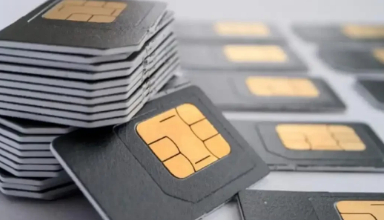Sim Cards Expire

SIM cards, a crucial component in our mobile devices, have a finite lifespan that often goes unnoticed until connectivity issues arise. Have you ever wondered why these essential cards expire, potentially causing disruptions in communication and network access? Factors such as technology obsolescence, wear and tear, and security considerations play a role in the expiration of SIM cards. Understanding the intricacies behind SIM card expiration can shed light on how to prolong their functionality and prevent unexpected service interruptions.
Why SIM Cards Expire
SIM cards expire due to the embedded technology’s limited lifespan, necessitating the replacement of the card to ensure optimal functionality and security. Expiration reasons include wear and tear on the physical card, advancements in technology rendering older cards incompatible, and security concerns related to outdated encryption protocols.
Renewal options typically involve acquiring a new SIM card from the service provider and transferring existing data to the new card.
How Long SIM Cards Last
When considering how long SIM cards last, it is essential to examine their lifespan. The lifespan of a SIM card can vary depending on various factors such as usage and storage conditions.
Understanding the factors that affect the longevity of SIM cards is crucial in determining whether renewal or replacement is necessary. By exploring these aspects, users can make informed decisions regarding the management of their SIM cards to ensure optimal functionality.
Read more : Roaming in Globe Prepaid
SIM Card Lifespan
The longevity of a SIM card is determined by various factors such as usage patterns, storage conditions, and technological advancements in the telecommunications industry.
Storage conditions play a crucial role in the lifespan of a SIM card as extreme temperatures or humidity can impact its functionality. Similarly, frequent usage can lead to wear and tear, causing the SIM card to deteriorate over time.
These factors collectively influence the overall lifespan of a SIM card.
Factors Affecting Longevity
Various environmental conditions and usage patterns significantly impact the lifespan of SIM cards. Factors such as storage conditions, usage patterns, environmental factors, and manufacturer quality play crucial roles.
Proper storage in a cool, dry place extends longevity. Excessive heat, moisture, or physical damage can shorten the lifespan. Regular usage within recommended parameters can also contribute to prolonged durability, while neglecting these factors can lead to premature failure.
Renewal or Replacement
Research suggests that the average lifespan of a SIM card ranges between 3 to 5 years, contingent on usage and environmental factors.
When looking at renewal or replacement options, users should consider the renewal process and available upgrade options.
Compatibility issues and troubleshooting tips should also be taken into account to ensure a smooth transition.
Understanding these aspects can help users make informed decisions when it comes to extending the life of their SIM card.
Signs of an Expired SIM
When a SIM card reaches its expiration date, users may notice signs indicating its diminished functionality. The most common sign is a ‘No Service’ message displayed on the device, indicating that the SIM card is no longer valid.
Users may also encounter an ‘Invalid SIM Card’ error or experience limited network access, signaling that the SIM card has expired and needs to be replaced.
No Service Available
Indications of an expired SIM card often manifest as a persistent ‘No Service Available’ message on the device’s screen. This message can signal network issues or communication problems with the service provider.
Troubleshooting steps may include restarting the device, checking for any outstanding payments, or contacting the service provider for assistance.
Resolving ‘No Service Available’ alerts is crucial for maintaining uninterrupted communication freedom.
Invalid SIM Card
Frequently, an invalid SIM card serves as a clear indicator of a SIM card that has expired or is no longer functional. It can result from issues during the activation process or improper data migration.
When encountering an invalid SIM card, it is crucial to check for expiration dates and ensure that the necessary steps have been correctly followed during activation and data transfer processes to prevent such occurrences.
Limited Network Access
An indication of an expired SIM card can manifest through limited network access, signaling the need for attention to the card’s validity.
Users may experience difficulties in accessing network coverage, particularly during international travel. This limitation can impact the functionality of data plans and may lead to unexpected roaming charges.
Ensuring a valid SIM card is crucial for uninterrupted connectivity and cost-effective communication while traveling abroad.
Checking SIM Card Status
One effective method to determine the status of a SIM card is by accessing the settings menu on the mobile device. This allows users to check various details such as sim card activation and network coverage.
Preventing SIM Card Expiration
To ensure that your SIM card does not expire prematurely, it is crucial to understand the factors that contribute to its expiration and take proactive measures to prevent it.
Regular SIM card maintenance, such as keeping it clean and avoiding physical damage, can help prolong its lifespan.
Additionally, active usage, like making calls or sending messages regularly, can prevent the SIM card from expiring due to inactivity.
Replacing an Expired SIM Card
When a SIM card expires, it is necessary to obtain a replacement to continue using your mobile device’s services.
To do this, you will need to renew your subscription with your service provider. Additionally, it is essential to update your contact details during this process to ensure seamless communication.
Impact on Phone Functionality
The expiration of a SIM card can significantly impact the functionality of your mobile phone. This affects its ability to connect to cellular networks and access services. Phone compatibility may be affected, leading to connection issues and potential data loss.
Moreover, network coverage could be compromised, resulting in limited or no service availability. It is crucial to address these issues promptly to ensure uninterrupted communication and usage of your device.
Understanding Service Disruptions
Understanding service disruptions involves examining the impact of expired SIM cards on network connectivity and communication reliability.
Service disruptions stemming from expired SIM cards can lead to network issues and hinder communication. Troubleshooting these problems is crucial to ensure seamless connectivity.
Conclusion
The expiration of SIM cards is a multifaceted issue influenced by various factors such as technological advancements, wear and tear, and security concerns. Understanding the reasons behind SIM card expiration can help users take preventative measures to maintain uninterrupted connectivity.
By regularly checking the status of their SIM cards and replacing them when necessary, individuals can ensure optimal performance and avoid service disruptions.




